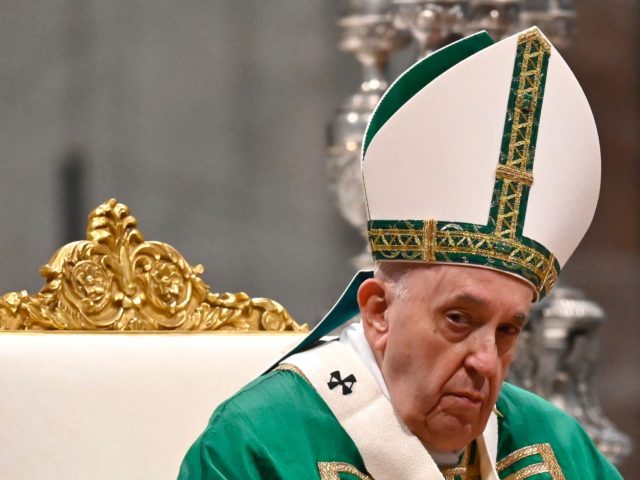ROME — Pope Francis returned to one of his favorite themes Saturday, warning of the evils of doctrinal rigidity and clericalism.
“Beware of rigidity, because rigidity is a perversion that comes precisely from clericalism,” the pope told members of the Theatine religious order gathered in the Vatican.
Rigidity is a “bad thing” and underneath there is always “rot,” he said, while urging his hearers instead to ground themselves firmly in the “essential things,” namely: “prayer, adoration, common life, fraternal charity, poverty, and service to the poor.”
Francis has often associated the vice of “rigidity” with conservative or traditional Catholics, who purportedly place too much emphasis on the liturgy and on Catholic doctrine.
Last summer, the pope said that it is easy to recognize false Christians by their “inflexibility” and their tendency to present themselves as “keepers of the truth.”
These sort of people “strongly affirm that the true Christianity is the one they adhere to, often identified with certain forms of the past, and that the solution to the crises of today is to go back so as not to lose the genuineness of the faith,” said.
Today “there is a temptation to close oneself up in some of the certainties acquired in past traditions,” Francis said. “But how can we recognize these people? For example, one of the traces of this way of proceeding is inflexibility.”
“Faced with the preaching of the Gospel that makes us free, that makes us joyful, these people are rigid,” he said. “Always the rigidity: you must do this, you must do that… Inflexibility is typical of these people.”
Even Saint Paul was once rigid and inflexible, Francis declared last June, but Jesus Christ set him free from his “fundamentalism.”
Paul was “set free from the religious fervor that had made him a zealous defender of his ancestral traditions and a cruel persecutor of Christians,” the pontiff asserted.
“Formal religious observance and the intransigent defense of tradition, rather than making him open to the love of God and of his brothers and sisters, had hardened him: he was a fundamentalist,” he argued, and God “set him free from this.”
The pope’s critics have insisted that Catholic doctrine is more important than Francis gives it credit for, since religious beliefs have real consequences and theology matters.
In 2017, the former doctrinal czar of the U.S. Bishops Conference (USCCB), Capuchin theologian Father Thomas Weinandy, wrote an open letter to Pope Francis, criticizing the pope for his “intentionally ambiguous” teaching, his downplaying of doctrine, and his derision of conservatives.
In his letter, Father Weinandy listed five points that illustrate the “chronic confusion” marking the Francis pontificate, namely, intentional ambiguity, disdain for doctrine, the naming of heterodox bishops, sowing division in the Church, and vindictiveness in the face of honest criticism.
Too often, the priest wrote, “your manner seems to demean the importance of Church doctrine. Again and again you portray doctrine as dead and bookish, and far from the pastoral concerns of everyday life.”
Yet while the Pope accuses his critics of making doctrine into an ideology, “it is precisely Christian doctrine that frees people from worldly ideologies and assures that they are actually preaching and teaching the authentic, life-giving Gospel,” he wrote.
Devaluing the doctrines of the Church means separation from Jesus, the author of truth, Weinandy declared.
This apparent lack of concern for the integrity of the Catholic faith “weakens the zeal of the many women and men who have championed authentic Catholic teaching over long periods of time, often at the risk of their own reputations and well-being,” Weinandy wrote, which makes them lose “confidence in their supreme shepherd.”

COMMENTS
Please let us know if you're having issues with commenting.